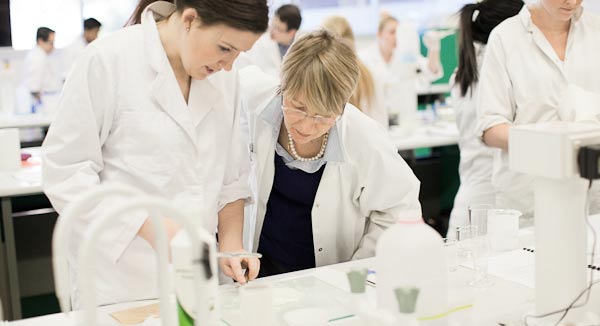A Bright Future Ahead for Pharmacists and Aspiring Pharmacists

Are you thinking of getting into the medical field? Or perhaps you’re already a pharmaceutical student or a recent grad. Either way, you’re in luck. Right now, every pharmacist looking for a job has an array of options, as the ratio of available pharmacists to pharmacies and research facilities looking to hire them is 0.4. Surprised? So are we. But the facts don’t lie. This past April, there were higher than anticipated job gains. The economy added 288,000 jobs, which marked the strongest month for job growth in two years! So what does this all mean for you – a newbie in the pharmaceutical industry? Well, as a result, pharmacists are enjoying increased wages and being poached to new jobs with compelling offers. But the real question may be… why the sudden need?
The reason for this market shift can, as usual, be attributed to a simple supply-demand equation. The root cause of the increased demand can be equated to one simple fact: patents are expiring on an alarmingly frequent basis. Major patents, like Purdue Pharma‘s seemingly omnipresent Oxycontin, are now free to be manufactured by anyone. This means that the original manufacturers have to report to leveraging the value of their brand and other clever marketing techniques to gain the public’s trust and have them chose their product over…you guessed it! Generic alternatives that are identical in every way.
The rise of the generic drugs is a colossal threat to pharmaceutical companies protected by patents. In spite of all the marketing and millions of dollars of campaigns that aim to ingrain the trustworthiness and reliability of the original brand, these companies lose about 90% of their sales when generics appear on the shelves. With a loss like that it doesn’t come as much surprise when you see pharmaceutical companies fervently lobbying to do everything they can to milk their patents for every last dollar.
This isn’t a new phenomenon by any means, but there’s another market force at play that completely exponentiates the effect of generic drugs on the pharmaceutical industry. They call the absurdly long list of popular drugs whose patent protection has expired or is expiring between 2007 and 2016 “the patent cliff” and it accounts for hundreds of billions of dollars in revenue that pharmaceutical companies rely on. This might deal a serious block to the research companies who created the drugs in the first place, but for pharmacists it means being in the middle of a demand boom as the drug market gets more competitive—and that’s a nice place to be.
In order to understand why this is happening we have to take a look at the pharmaceutical industry in the 80’s and 90’s. Utility patents last 20 years and most drugs only get 5 to 15 years of real patent protection following market availability, since the drugs need to go through extensive research, development, analysis and testing. In the early 80’s in the US there wasn’t as much competition between pharmaceutical companies. The industry was fragmented across a cornucopia of small players with no one company commanding significant market share. Most companies specialized in a particular type of drug rather than creating a massive operation that dealt with drugs meant for different purposes. This allowed these companies to specialize as well as not feel threatened by competition due to the small quantity of direct competitors with the same specialization.
So what changed? First, without competition to keep things level, these companies started raising their prices (which is, by the way, a major contributing factor to why drug prices in the US are still so astronomically high). Ridiculously high profit margins were reported by these companies and investors and entrepreneurial scientists alike started to take notice. Investment in biotech and drug development began to breed a culture of commercializing drug breakthroughs and the little companies who used to populate the market became—and were replaced by—the big companies we hear of today. As these companies went public they saw tremendous profits and attracted more investors in the form of traders, which further compounded the transformation of the pharmaceutical industry into something that resembled an oligopoly.
But now the sand in the hourglass for the drugs these companies initially developed is running out. This means the biotech field is experiencing rapid growth due to the interest of generic drug manufacturers as well as increased investment from the industry’s big players to develop new drugs that enjoy protection from the USPTO. Feeling relieved yet? All in all, whether you’re a new grad or soon-to-be grad of pharmacy, you should know that your chances are looking really good. Right now, pharmacists are winning big. And soon, so could you.

